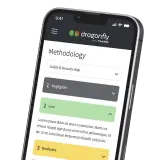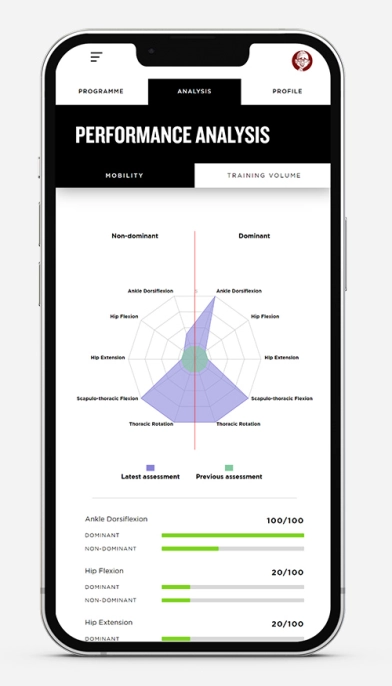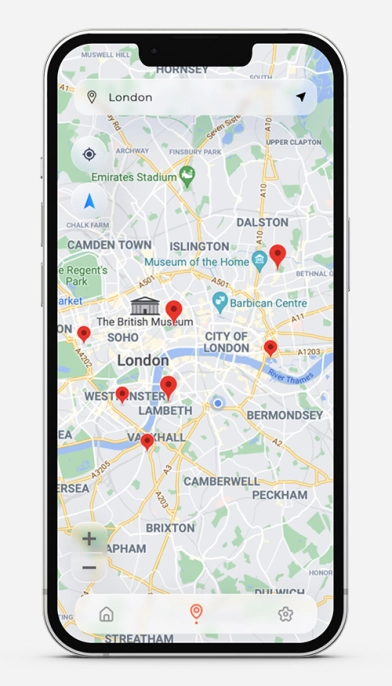How to Create a USP for your app or business: In this episode of Tech Toolkit by Scorchsoft, we delve into the concept of crafting Unique Selling Points through the lens of the Doblin Ten Types of Innovation. These types, developed by Larry Keeley at Doblin, serve as a blueprint for diversifying innovation in your business.
We started the episode by introducing the ten types of innovation, highlighting real-world examples and discussing how they might apply to your business. The ten types of innovation include Business Model, Network and Alliances, Internal Process, Core Process, Product Performance, Product System, Service, Channel, Brand, and Customer Engagement.
The key takeaway from this episode is not just to adopt one type of innovation but to combine several. We explored how a business, such as a health and fitness app, could leverage these types to create a unique selling point. We encouraged listeners to conduct an 'Innovation Audit', mapping each type of innovation against their business to identify potential areas for growth and diversification.
Towards the end, we touched upon the future trend of large language model AI, like ChatGPT, and how businesses could leverage this technology to improve several of the ten types in subtle but meaningful ways.
Finally, we highlighted the importance of diversified innovation in standing out in a crowded market and how Scorchsoft can assist businesses with their innovation journey.
Key Topics Covered
- Doblin Ten Types of Innovation: An overview and real-world examples.
- Applying the Ten Types to Your Business: Exploration of how these concepts can be applied in a practical context.
- The Role of AI in Innovation: Discussion on the future trend of AI and its potential applications.
- Conducting an Innovation Audit: A step-by-step guide to mapping each type of innovation against your business.
- The Importance of Diversified Innovation: A conclusion on the necessity of innovation for standing out in a crowded market.
Full Podcast Transcript
Hello and welcome to Tech Toolkit by Scorchsoft, the podcast designed to help you navigate the complex world of technology and app development. Today, we're talking about crafting Unique Selling Points, USPs, by exploring the Doblin Ten Types of Innovation. We'll touch on real-world examples, discuss how these principles can be applied to your business, and even delve into the future trends.
Understanding the concept of the Doblin Ten Types of Innovation is crucial to help set your business apart from the competition. These ten types of innovation, developed by Larry Keeley at Doblin, encompass a broad range of changes a company can introduce—be it in its business model, processes, or products.
We think of inventors as coming up with a single revolutionary idea that changes everything; However, the beauty of these types lies in the fact that innovation isn't always about groundbreaking ideas. Instead, it's often about unique combinations of smaller innovations that, together, make a big difference.
Let's briefly go over each type:
1. Business Model: This is about how your company creates, delivers, and captures value. Uber, for example, disrupted the taxi industry with its unique model, connecting drivers with passengers via an app. For opportunities, consider how you could change your business model to provide better value to your customers.
2. Network and Alliances: It's about how you connect with others to create value. Apple, for instance, formed a strategic partnership with Mastercard to offer Apple Pay, enhancing its value proposition. Look for potential alliances in your industry that could enhance your product or service offering.
3. Internal Process: This covers all behind-the-scenes activities that enable the business to function effectively. Amazon's highly optimised logistics and delivery process is a great example. Explore your own internal processes and consider where efficiencies could be gained or where automation could be introduced.
4. Core Process: This involves your primary activities that deliver your product or service. Spotify, for example, uses an innovative algorithm to suggest songs based on users' music tastes. Examine your core processes and think about how they could be improved or modernised.
5. Product Performance: This type is about enhancing distinguishing features and functionality. Tesla, known for its innovative electric cars, constantly improves the range and speed of its vehicles. Look at your own products or services and consider where performance could be enhanced.
6. Product System: This principle is concerned with creating complementary products and services. Google's suite of interconnected apps, such as Gmail, Google Drive, and Google Photos, is a perfect example. Think about how your offerings could be interconnected to provide a seamless user experience.
7. Service: This revolves around the support you provide to your customers. Zappos is renowned for its exceptional customer service, setting a high standard in its industry. Reflect on your customer service channels and consider where improvements could be made.
8. Channel: This relates to how your products or services are delivered to customers. ASOS, an online-only fashion retailer, disrupted the industry with its innovative distribution model. Evaluate your distribution channels and consider if there's a more efficient or effective way to reach your customers.
9. Brand: This involves how your company is represented to customers. Apple, with its strong brand presence and loyal following, is a striking example. Take a look at your brand and consider if it accurately represents your company and appeals to your target audience.
10. Customer Engagement: This relates to how you foster interactions with customers. Duolingo, the language-learning app, uses gamification to keep users engaged. Reflect on your customer engagement strategies and consider how you could create a more interactive and engaging customer experience.
Now, let's consider how you can apply these types to your business. The key is not to just adopt one type of innovation but to combine several. Like a well-balanced meal, a combination of these innovations can create a unique selling point for your business. If you can set yourself apart from your competitors in a lot of small but meaningful ways, this may be enough of a difference to take your business to the next level.
Imagine this: Perhaps you're developing a health and fitness app. You could look at innovating your business model by offering a freemium service, or enhance customer engagement with personalized workout plans that capture your personality as a trainer. You could also leverage network alliances with fitness equipment manufacturers for integrated tracking to give yourself a unique route to market inaccessible to your competitors.
Looking towards the future, the use of large language model AI, like ChatGPT, in businesses is a trend worth considering. This could be implemented in your business to perform tasks automatically that, until recently, could only be performed by humans. Are there ways that you could leverage this exciting new technology to improve several of the ten types in small but meaningful ways?
As your actionable takeaway from this episode, I'd encourage you to conduct an 'Innovation Audit'. Take some time this week to sit down and map out each of the ten types of innovation against your business. Are there areas where you're excelling? Are there clear gaps where a small, but impactful, innovation could significantly boost your USP? This exercise will help you identify potential areas for growth and diversification. You should also consider the types of innovations are you currently using, where the opportunities exist to introduce new ones.
To wrap up, diversified innovation is critical to stand out in a crowded market. It's not about reinventing the wheel; it's about the unique combination of many little things that sets you apart.
And remember, if you're looking to explore these innovation types in your business, Scorchsoft is here to help you make it happen. With over a decade of experience in developing online portals, applications, and mobile apps, we're experts in delivering technically complex projects. Learn more at scorchsoft dot com. And until next time, happy innovating!











